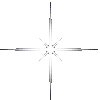 |
Easter Monday |  |
 |
Easter Monday |  |
Easter Monday is the Monday following Easter. In Ukraine it is called Dousing or Watering Monday (Oblyvanyi Ponedilok).
There is an old custom in Ukraine to douse each other with cold water on Easter Monday. Those who wake up early in the morning are first to douse everybody else at home with cold water while those are still in bed. Usually parents are first who wake up and sprinkle their children. And for children who wake up earlier than their parents it is such a fun to pour cold water on sleeping parents, knowing they are not going to be punished for that.
There is also a very old tradition according to which boys pour cold water over girls in the early Easter Monday morning. And girls in turn can surprise the boys with some major watering on Easter Tuesday.
Water has always been the symbol of life and used as a major cleansing/purification and blessing remedy. Water was considered to have magic powers, which protect from evil, strengthen mother-earth and make it fertile, and for a human it was giving health and strength, happiness, well-being etc. This old custom in Ukraine to douse anybody or self with cold water comes from pre-Christian times. The ritual of watering was practiced at the beginning of Spring (at the Equinox). It was sudden, hidden, and unexpected, and symbolizes a Spring cleansing and purification with water.
Being watered on Easter Monday is for rejuvenation, freshness, wholeness, happiness, strong health, beauty and good luck throughout the year. It can range from having a few drops of warm tap water dribbled on you to a bucket of ice-cold water poured over you..
Nowadays water fights are enjoyed on the streets and total strangers of any age can become victims of drenching. Young people attack with water toys, or ruthlessly empty full buckets of water onto randomly selected passers. People who wish to avoid a soaking are strongly advised not to go outdoors at least until midday.
The same custom exists in many other European cultures.